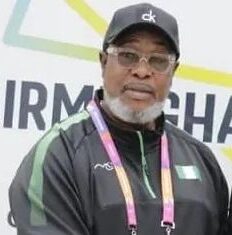The Federal Government says it remains committed to meeting the nation’s debt obligations as N3.12 trillion is earmarked for debt service in the 2021 budget proposal.
President Muhammadu Buhari made this known when he presented the 2021 budget proposal of N13.08 trillion to the National Assembly in Abuja on Thursday.
According to him, the amount represents an increase of N445.57 billion from N2.68 trillion in 2020.
“We remain committed to meeting our debt service obligations.
“Hence, we have provisioned N3.12 trillion for this in 2021, representing an increase of N445.57 billion from N2.68 trillion in 2020.
“A total of N2.183 trillion has been set aside to service domestic debts while N940.89 billion has been provided for foreign debt service.
“N220 billion is provided for transfers to the Sinking Fund to pay off maturing bonds issued to local contractors and creditors.’’
On the breakdown of the budget, Buhari said N3.85 trillion had been earmarked for Capital Expenditure.
He said: “An aggregate sum of N3.85 trillion is expected to be available for capital projects in 2021.
These, he said are N1.80 trillion for MDAs’ capital expenditure; N745 billion for Capital Supplementation; N355 billion for Grants and Aid-funded projects and N20 billion for the Family Homes Fund.
Others are N25 billion for the Nigeria Youth Investment fund; N336 billion for 60 Government Owned Enterprises; N247 billion for capital component of Statutory Transfers; and N710 billion for projects funded by Multi-lateral and Bi-lateral loans.
According to the President, the 2021 capital budget is N1.15 trillion higher than the 2020 provision of N2.69 trillion.
He noted that, at 29 percent of aggregate expenditure, the provision moves closer to this administration’s policy target of 30 percent.
Buhari stated that the capital expenditure in 2021 remains focused on the completion of as many ongoing projects as possible, rather than the commencement of new ones.
He further disclosed that key capital spending allocations in the 2021 Budget include:
`’Power: N198 billion (inclusive of N150 billion for the Power Sector Recovery Plan); Works and Housing: N404 billion; Transportation: N256 billion; Defence: N121 billion; Agriculture and Rural Development: N110 billion; Water Resources: N153 billion and Industry, Trade and Investment: N51 billion.
Others are: Education: N127 billion; Universal Basic Education Commission: N70 billion; Health: N132 billion; Zonal Intervention Projects: N100 billion; and Niger Delta Development Commission: N64 billion.’’
The President said his administration had made efforts to ensure equity in the distribution of projects and programmes in the proposed budget.
“I will be providing the National Assembly a list of some of the most critical projects which we must work collectively to ensure they receive adequate funding.
“Until projects reach completion, they do not deliver the dividends of democracy that Nigerians rightly deserve.’’
On the Recurrent Expenditure, the president stated that N5.65trillion had been earmarked for Non-debt Recurrent Cost, N3.76trillion for Personnel Cost and N501.19billion would be expended on Pensions, Gratuities and Retirees’ benefits.
According to the President, the total overhead costs of MDAs and Government Owned Enterprises are projected to rise to N625.50 billion in 2021.
He said this was mainly due to the inclusion of the overheads of an additional 50 Government-Owned Enterprises.
“Overhead provisions have also been made for newly created agencies.
“To keep a tab on running costs, MDAs must adhere to extant expenditure controls.’’
NAN














